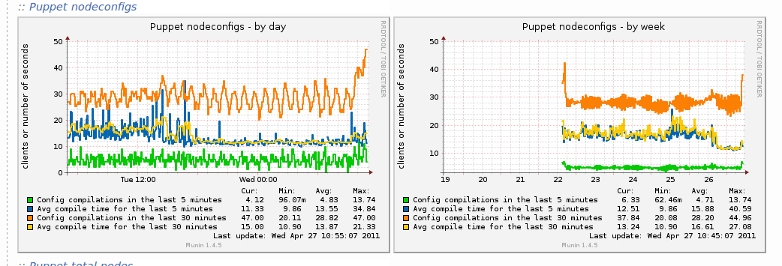Happy customers
Always nice to get a token of appreciation!
More...
In addition to the kumina repository we released last Friday, we’re happy to announce the release of our nagios-plugins-kumina repository, storing our in-house developed plugins for Nagios.
More...
We’re glad to announce that we’ve published our set of EC2 scripts on GitHub! The repository contains current versions of the code described in our previous two blog posts on EC2.
More...
We wanted to trend our puppetmaster to give us an idea of the amount of nodes and the time it takes to compile a catalog. Searching on the web didn’t yield the results we needed, so we made our own.
More...
We wanted to give some of our customers the ability to restart some of their own services on their development environment. To be able to do this we made a puppet module.
More...
How we solved a problem with the machine hitting max mmap count.
More...
By default, instances created on Amazon EC2 will have a randomly assigned IPv4 address, which is why we’ve written a script to automatically create DNS entries in PowerDNS for instances managed through EC2.
More...
We published our internally developed puppet modules.
More...Kumina designs, builds, operates and supports Kubernetes solutions that help companies thrive online. As Certified Kubernetes Service Partner, we know how to build real solutions.